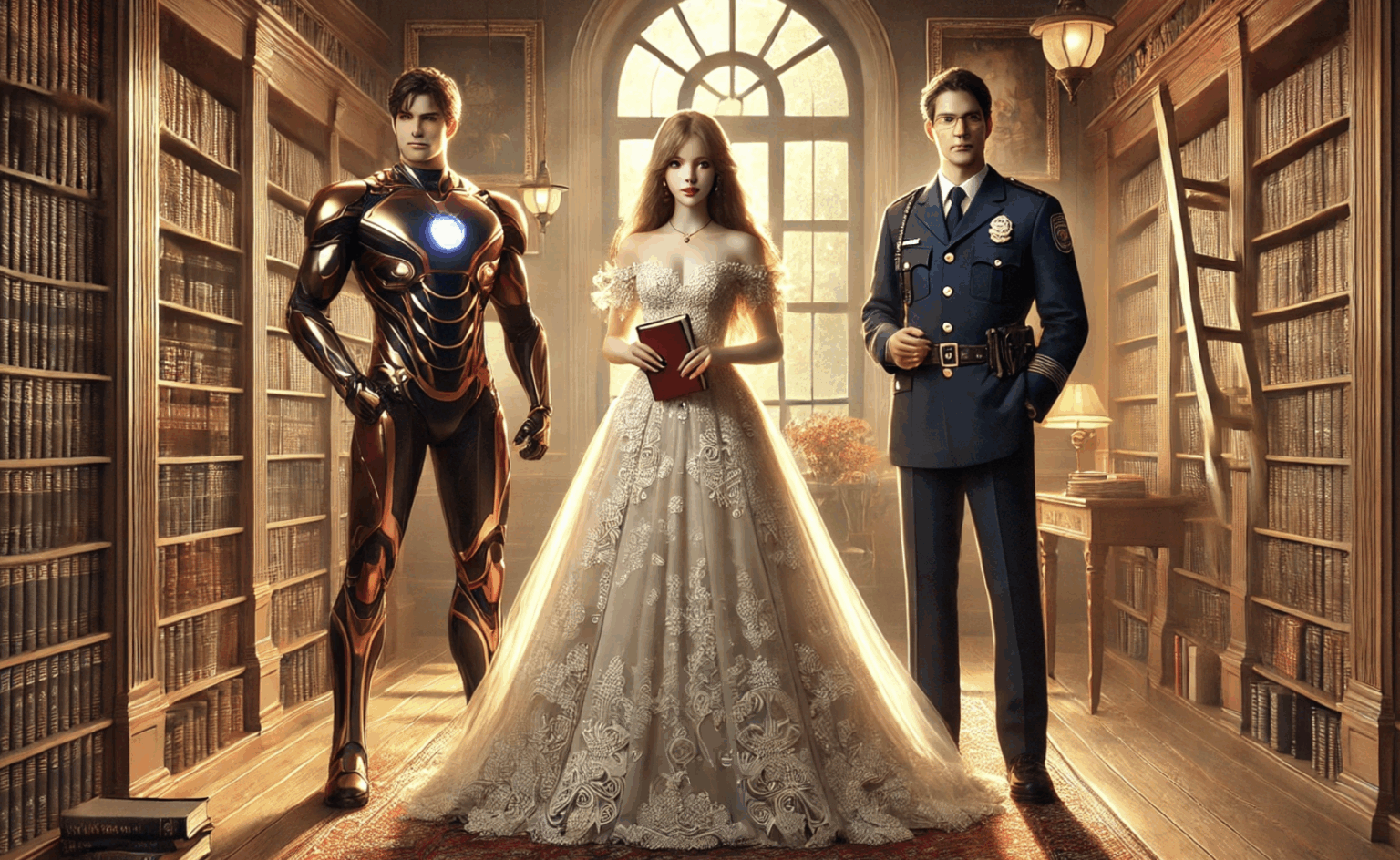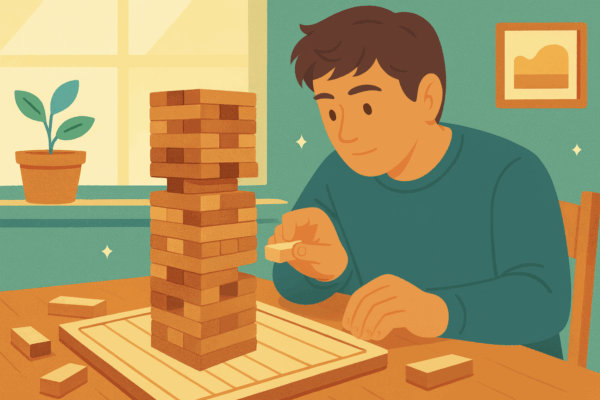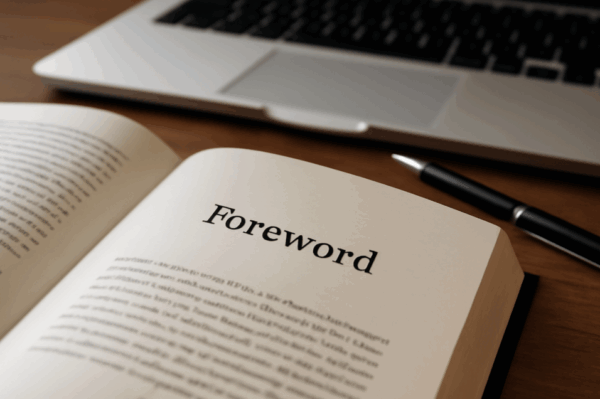Picture this: You’re watching a movie, and the “love interest” walks in. They’re tall, blonde, and effortlessly perfect—essentially a walking Pinterest board. And… that’s about it. No backstory, no internal conflict, no quirks. They’re like a cardboard cutout with a great smile. Yawn.
We’ve all been there, right? That moment when you realize the character you’re supposed to root for is as flat as a pancake. Now, imagine if someone had asked a few simple character development questions—questions that dig deeper than “What’s their favorite color?” (Because honestly, we all know that isn’t going to make anyone memorable).
Character development questions are your secret weapon against one-dimensional characters. These questions help you uncover what makes your characters tick—what they fear, desire, and struggle with. Without them, you risk creating those cardboard cutouts that serve no purpose beyond filling a plot hole.
So, if you want your characters to leap off the page and into your reader’s heart, it’s time to get serious about asking the right questions. In this article, we’ll explore the must-ask questions that will give your characters depth, motivation, and a memorable spark. No more clichés, no more boring backstories—just real, flawed, and totally unforgettable characters.
The Art of Character Creation: Why a Character Questionnaire is Essential
Think of your character questionnaire like a therapist’s couch—except instead of lying down and spilling your secrets, your character is doing the talking (and, let’s face it, they might have some juicy stories to share). A character questionnaire isn’t just a boring checklist of facts; it’s your chance to dive into your character’s psyche, motivations, and past. Without it, you’re just guessing what makes your character tick, and let’s be real: a guess is rarely a good substitute for solid character development.
Your Character’s Bio: Not Just a Checklist—It’s Their Life Story
A well-thought-out character questionnaire helps you answer big questions like: Who are they really? What drives them? What keeps them up at night? You’re not just checking off answers like “What’s their favorite food?” (Because, honestly, if that’s all you know about your character, they’re probably more of a “bland protagonist” than a “complex lead”). Instead, you’re digging deep with questions that will shape their entire arc. For example:
What’s their biggest fear? Is it spiders? Or is it something more existential, like failing to live up to their own potential?
What’s their greatest regret? Did they make a life-changing mistake in their past that they can never undo? Or are they still holding onto something small but significant, like that time they didn’t ask someone out in high school?
These aren’t just throwaway questions—they’re the foundation of your character’s soul. The answers will dictate how they react in moments of conflict, how they interact with others, and how they evolve throughout your story.
Of course, if you ask the wrong questions—like “What’s their favorite snack?”—you might end up with a character who’s just a walking bag of chips and nothing more. So, let’s steer clear of that and get down to the questions that matter. With the right character questionnaire, you’ll unlock a treasure trove of personality, backstory, and untapped potential!
Must-Ask Character Development Questions to Flesh Out Your Characters
The Deep Stuff That Will Make Your Characters Real: So, you’ve got your character questionnaire ready, and you’re itching to dig deeper—great! But how do you ensure you’re asking the right questions? It’s all about getting to the juicy, uncomfortable stuff that reveals your character’s true essence. A good set of character development questions can help you uncover hidden fears, motivations, and quirks that transform your character from a one-dimensional trope into a fully fleshed-out human (or humanoid, or whatever your character is).
Here are some must-ask questions to really get into your character’s head and make them feel real:
Background Questions: Who Are They Really?
- What’s their biggest fear—and why?
- It’s not just about spiders or clowns. Is your character afraid of failure? Rejection? Losing someone they love? Fear shapes actions, so understanding their deepest anxieties can tell you a lot about how they’ll react in high-stakes situations.
- It’s not just about spiders or clowns. Is your character afraid of failure? Rejection? Losing someone they love? Fear shapes actions, so understanding their deepest anxieties can tell you a lot about how they’ll react in high-stakes situations.
- What’s their greatest regret?
- Maybe they didn’t save a friend from danger, or perhaps they took a career path they’re now stuck in. Whatever it is, regrets reveal vulnerabilities and help define a character’s inner conflict. Plus, they make your character relatable—because who doesn’t have a regret or two?
Personality Questions: What Makes Them Tick?
- How do they react when they’re pushed to the limit?
- Do they crumble under pressure or rise to the challenge? This question helps you identify their resilience (or lack thereof), and it’s crucial for building tension in your story. Plus, it’s always fun to throw your character into a stressful situation and see how they handle it.
- Do they crumble under pressure or rise to the challenge? This question helps you identify their resilience (or lack thereof), and it’s crucial for building tension in your story. Plus, it’s always fun to throw your character into a stressful situation and see how they handle it.
- What is their sense of humor like?
- Humor is a window into a character’s personality. Are they sarcastic, dry, goofy, or dark? A character’s sense of humor can also be an outlet for coping with stress or displaying a more vulnerable side. Imagine a brooding detective cracking dark jokes—it’s an instant character depth-builder.
Motivations & Desires: What Drives Them?
- What’s their greatest ambition?
- This question helps you understand what your character is striving for. Are they after power, love, redemption, or perhaps something more abstract, like peace of mind? Knowing their ambitions will help you build their arc and create a more compelling reason for readers to root for them.
- This question helps you understand what your character is striving for. Are they after power, love, redemption, or perhaps something more abstract, like peace of mind? Knowing their ambitions will help you build their arc and create a more compelling reason for readers to root for them.
- Who do they trust the most—and why?
- Trust is a major pillar in character relationships. Whether it’s a family member, a best friend, or a mentor, knowing who your character trusts (and why) can reveal their emotional core. Trust issues? Another layer of complexity to explore.
Family and Relationships: Who Shaped Them?
- What’s their relationship like with their family?
- A classic but essential question. Do they have a tight-knit, supportive family, or is their relationship fraught with tension and unresolved conflict? A character’s family dynamic often shapes their worldview, personality, and emotional responses. Plus, family drama always makes for juicy storytelling.
- A classic but essential question. Do they have a tight-knit, supportive family, or is their relationship fraught with tension and unresolved conflict? A character’s family dynamic often shapes their worldview, personality, and emotional responses. Plus, family drama always makes for juicy storytelling.
- What would they do to protect those they love?
- This one cuts to the heart of your character’s loyalty and values. Would they sacrifice their own happiness, safety, or freedom for the people they care about? This question lays the groundwork for pivotal moments of sacrifice or moral conflict.
Now, a quick note: While it’s important to ask them, don’t get bogged down in asking too many surface-level ones. We’re talking about more than “What’s their favorite pizza topping?” (Although, if your character is a pizza connoisseur, that could be fun, too.) Keep the focus on the deep stuff—the kinds of questions that make your character sweat, cry, or laugh. Otherwise, you risk creating characters who are little more than walking, talking spreadsheets of traits and quirks, and nobody wants that.
By asking these key character development questions, you’ll uncover the complex layers that make your character uniquely them—and trust us, that’s the kind of depth readers remember.
The Secret Sauce: How These Character Development Questions Create Complex Characters
Ever read a book or watched a movie where the main character just feels… flat? Maybe they have some traits, but they don’t feel like a real person. That’s because, without asking the right character development questions, you end up with a blank slate—and nobody wants to read about a cardboard cutout walking through a plot.
But when you ask the right questions, something magical happens. Your character goes from a collection of vague traits to a fully realized, complex individual with desires, fears, flaws, and motivations. Suddenly, they’re not just there to move the plot along—they’re driving the action and making readers care about every twist and turn.
For example, let’s say you start with a character who’s on a quest for vengeance. Sure, vengeance sounds dramatic and all, but why? If you dig deeper into their psyche with character development questions, you might uncover a hidden motive—perhaps their thirst for revenge is tied to a painful past where they were betrayed by someone they loved. The vengeance is no longer just an external goal; it’s a way to heal—or at least feel in control of something they’ve lost.
Now, contrast that with a character motivated by redemption. What if that same character, instead of vengeance, is striving to make up for a past mistake, perhaps by saving someone they wronged? The desire for redemption would shape every decision they make, making their choices more nuanced, their actions more conflicted. Now you’ve got a character with internal struggles that make them feel real because they’re not just reacting to external events—they’re battling their own demons.
So, the next time you’re staring at a character who feels as exciting as soggy cardboard, ask yourself: What’s their biggest fear? What’s their greatest regret? How would they react when pushed to the limit? These character development questions won’t just help you flesh out your character—they’ll give them layers, depth, and a backstory that makes them come alive.
Digging Deeper: Questions to Ask for Character Development That Get to the Core
Once you’ve nailed down the basics of your character’s backstory and personality, it’s time to dig deeper—the kind of digging that will uncover the heart of your character. These are the questions that will give your character a life purpose, create internal conflict, and lay the groundwork for a truly memorable arc.
Here are a few thought-provoking character development questions to really get to the core of who your character is:
- What does your character value more than anything?
- Is it love, freedom, justice, power, or something else entirely? Their core values will drive nearly every decision they make, and they’ll form the bedrock of their motivations. This question will help you build a character whose actions feel authentic because everything they do will be rooted in their fundamental beliefs.
- Is it love, freedom, justice, power, or something else entirely? Their core values will drive nearly every decision they make, and they’ll form the bedrock of their motivations. This question will help you build a character whose actions feel authentic because everything they do will be rooted in their fundamental beliefs.
- How does your character define success?
- Success isn’t one-size-fits-all. For some, it’s fame and fortune; for others, it’s peace of mind or the simple act of helping others. Understanding what success means to your character gives you insight into their ambitions—and the lengths they’ll go to achieve them.
- Success isn’t one-size-fits-all. For some, it’s fame and fortune; for others, it’s peace of mind or the simple act of helping others. Understanding what success means to your character gives you insight into their ambitions—and the lengths they’ll go to achieve them.
- What moral line will they never cross?
- Every character has their limits. Whether it’s refusing to betray someone they love or sticking to their moral compass no matter the situation, this question shapes your character’s ethical code. And when that line is tested? That’s when the real character development happens—watching them navigate the choice will reveal their true nature.
These deeper questions are where the magic happens. They help you build characters with internal conflict, emotional depth, and memorable arcs. Because in the end, it’s not just about what your character does—it’s about why they do it. And that’s what makes them unforgettable.
Your Publishing Journey Awaits – Start NowAvoiding the Pitfalls: What to Do When Your Character Still Feels Flat
So, you’ve been pouring your heart and soul into your character, but when you step back and look at them, something’s… missing. They still feel about as exciting as a wet paper towel. We’ve all been there! Sometimes, despite our best efforts, characters still end up feeling flat. Don’t worry, though—this is fixable. Let’s troubleshoot.
Common Pitfalls:
- Overusing Tropes: Sure, we love a brooding detective or a quirky sidekick, but when you lean too hard into well-worn tropes, your character can start to feel more like a mannequin than a fully realized individual. If your character is just the angry loner with a heart of gold, ask yourself why. Are there deeper layers to explore?
- Neglecting Backstory: If you haven’t fleshed out your character’s past, you’re missing out on a goldmine of personality-shaping details. A character’s history shapes their fears, ambitions, and flaws. If you don’t know where they came from, how will you know where they’re going?
- Failing to Address Character Flaws: A “perfect” character is like the human equivalent of an iPhone—everyone loves the idea, but we all know it’s a little too flawless to be real. Give your character some imperfections, please! They need flaws that drive their growth and create internal tension.
Tips for Fixing Flat Characters:
- Revisit the Character Questionnaire: Go deeper with the questions to ask for character development. What drives them? What scares them? Push beyond the basics!
- Focus on Unresolved Conflicts: A character without unresolved internal conflict is a character that’s static and, frankly, boring. What are they struggling with internally? What’s holding them back from achieving their goal?
- Add Imperfections: A character with flaws, fears, and vulnerabilities is way more interesting than one with a flawless resume. Let their mistakes shape their growth.
So, if your character is still giving off serious “cardboard cutout” vibes, take a step back and ask yourself: Have I made them real? If not, it’s time to dig in with those essential character development questions and breathe some life into them!
Your Characters Deserve to be Remembered
At the end of the day, your characters are the heartbeat of your story. If you want them to leave a lasting impression on your readers, they need to be more than just names on a page—they need depth, complexity, and relatability. The right character development questions are your key to unlocking that potential. By asking the right questions, you can uncover fears, desires, and flaws that will make your characters unforgettable.
So, don’t settle for one-dimensional, cardboard cutout characters. Take the time to dive deep with a character questionnaire, and don’t be afraid to dig into the messy, uncomfortable, and wonderfully human aspects of your character’s psyche. Even small questions can lead to huge discoveries that will not only shape your character’s arc but will also make your story richer and more engaging.
Now, it’s your turn—grab that character questionnaire and start exploring. You’ll be amazed at what you can uncover. Remember, your characters deserve to be remembered, and with the right questions, they will be.
FAQs – Character Development Questions
Q1: What makes a well-developed character?
A well-developed character is multifaceted, with depth and complexity that make them feel real. They have clear motivations, strengths, weaknesses, fears, and desires that drive their actions and decisions. A well-developed character also undergoes some form of growth or change throughout the story, shaped by their experiences and challenges. They should feel authentic, relatable, and consistent, with a backstory that informs their present behavior. Ultimately, their development should be integral to the plot, contributing to the narrative in meaningful ways.
Q2: What are some good examples of character development?
Some great examples of character development can be seen in characters like:
Elizabeth Bennet in Pride and Prejudice – Initially, Elizabeth is quick to judge others, especially Mr. Darcy. However, through her growth, she learns to set aside her prejudices and recognize her own faults, leading to a more mature understanding of love and relationships.
Walter White in Breaking Bad – Over the course of the series, Walter’s transformation from a mild-mannered chemistry teacher to a ruthless drug kingpin shows a dramatic character arc driven by ambition, pride, and desperation. His development is both tragic and compelling.
Harry Potter – Over the course of the series, Harry grows from a naive, lonely boy into a brave young man who understands the complexities of love, friendship, and sacrifice. His personal growth is a key part of the story’s themes.
Q3: How do you write a character interview/questionnaire?
A character interview is a tool used by writers to better understand their characters. Here’s how to approach it:
Start with the basics: Ask your character about their name, age, appearance, and background to establish a foundation.
Explore their motivations: Ask questions about what drives them, their goals, and what they fear most.
Dive into their past: Questions about their childhood, family, and key life events can help you understand their behavior and decisions.
Challenge them: Ask tough questions like, “What’s their greatest regret?” or “What moral line would they never cross?” to uncover deeper layers of their personality.
Observe their reactions: Pay attention to how your character responds to questions—are they defensive, open, or evasive? This can give you insight into their psychological state.
The key is to ask open-ended questions that allow your character to reveal who they are in a natural, evolving way.
Q4: What are the six pillars of character development?
The six pillars of character development typically include:
Backstory – A rich history that explains who the character is and why they behave the way they do.
Motivations – The desires or goals that drive the character’s actions.
Strengths – The positive traits that empower the character, such as bravery or intelligence.
Flaws – The imperfections or weaknesses that make the character feel human and relatable.
Conflict – The internal and external struggles the character faces, which challenge their development.
Growth – The changes the character undergoes, whether positive or negative, over the course of the story.
Together, these pillars work to create a multidimensional character whose journey feels authentic and engaging.
Q5: How do you structure character development?
Character development can be structured through:
Introduction: Present your character with initial traits, motivations, and background.
Inciting Incident: Introduce a challenge or event that forces the character to react, setting their development in motion.
Conflict and Challenges: Throughout the story, your character faces obstacles that test their strengths and flaws. This is where the most significant growth happens.
Climax: At this point, your character is forced to confront their fears, flaws, or desires. They make a choice that will define their development.
Resolution: The character reflects on the journey they’ve undergone and shows how they’ve changed, either for better or worse.
This structure allows the character’s evolution to feel gradual and earned, integrating with the narrative’s progression.
Q6: Can character growth be negative?
Yes, character growth can certainly be negative. While many stories focus on positive character arcs where characters overcome flaws and improve, a negative or tragic arc can be just as compelling. In this case, the character might fail to learn from their mistakes or become worse over time, such as becoming more bitter, selfish, or morally corrupt. This kind of growth often leads to tragic endings or a sobering commentary on human nature, making it an important aspect of storytelling. The key is that the character’s negative growth feels earned and fits with the overall narrative.








